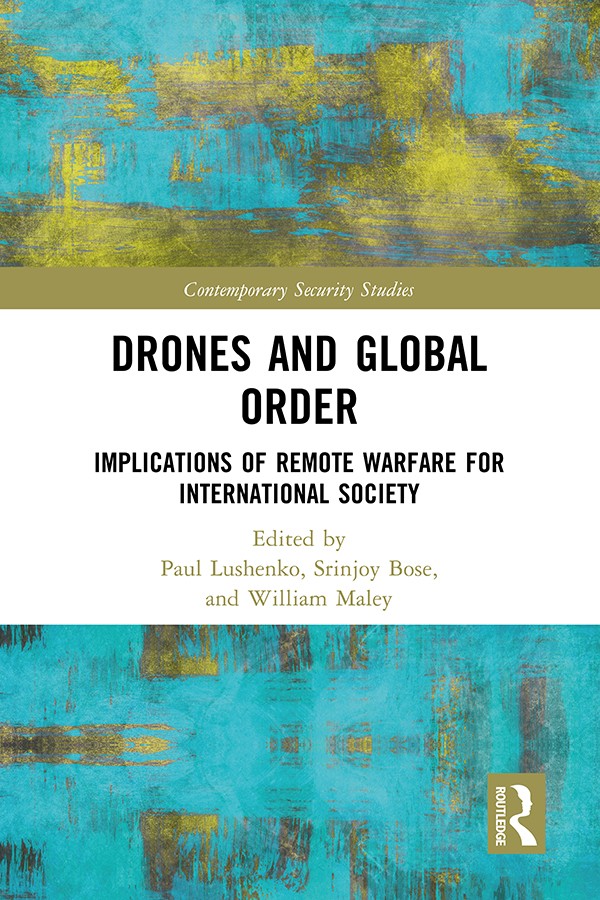An upcoming book by a Cornell doctoral student explores a new field of study related to the use of Unmanned Aerial Vehicles, typically referred to as drones, in warfare.
"Drones and Global Order: Implications of Remote Warfare for International Society" (Routledge, 2021) edited by Paul Lushenko, Srinjoy Bose and William Maley, will be released Dec. 29.
Much of the current literature on armed drones focuses on their proliferation across countries, effectiveness against terrorists, and the legal, moral, and ethical impacts of their use, said Lushenko, a U.S. Army Lieutenant Colonel and doctoral student in International Relations. His work "fills the gap by contributing to a 'fourth wave' of literature concerned with the trade-offs imposed by drone warfare for global order."
The book includes chapters by 15 authors, including both academic and military experts, covering issues ranging from the impacts of armed drones on sovereignty to the implications for international law.
"There's a pattern of relations that govern how states interact with each other and we don't yet understand the implications of drone warfare on those interactions," he said. "Drones also have implications for international law and for humanitarian intervention. While the implications are broadly negative, in some cases they can be helpful."
Lushenko is at Cornell as part of the U.S. Army's Advanced Strategic Planning and Policy Program, which prepares officers for service as strategic planners and leaders through a combination of practical experience, professional military education and a university doctorate.
"This program allows officers to reconcile a passion for critical thinking with a desire to lead men and women operationally," he said.
Along with this book, Lushenko's work was recently featured on a West Point podcast and he's written several articles on the topic, including this recent Washington Post piece with co-author Sarah Kreps, the John L. Wetherill Professor of government and an expert on drone warfare.
"I'm an analytical person, so I've always been interested in deeply understanding issues, coming up with hypotheses and testing them," he said. "At key gates in my career, I've attempted to bridge my operational experiences and expertise with an academic appreciation and study of emerging trends in warfare."
Kathy Hovis is a writer for the College of Arts and Sciences.







